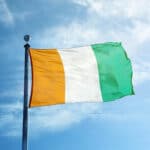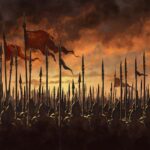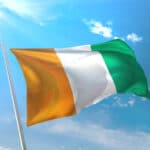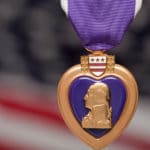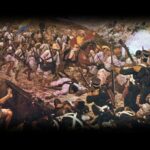The Battle of Boyacá Day is celebrated on August 7 of every year in Colombia to commemorate the 1819 Boyacá battle and its importance to the South American liberation struggle. It is seen as the victory that laid the foundations for Colombia’s independence from the Kingdom of Spain and is celebrated with parades and festivals that pay tribute to the war that paved the way for Colombia’s sovereignty.
History of Battle of Boyaca
The main significance of the Battle of Boyacá was its role in freeing Colombia from Spanish rule. Although Colombia, then named New Granada, declared de facto independence in 1810, it was not until 1819 that the Kingdom of Spain recognized the territory as an independent entity, following the battle.The Battle of Boyacá took place on the outskirts of Bogotá, the current capital of Colombia, and involved 2,850 soldiers under Simón Bolívar’s command against a slightly smaller army of Spanish royalists sent by Ferdinand VII, King of Spain. In 1815, Ferdinand VII plotted to reconquer South America after Napoleon’s Peninsular War in Spain ended, thereby freeing his armies to take part in the reconquest. However, due to Spain being worn out by the war in Europe, its grip on South America was severely weakened. However, they managed to retake New Granada by reoccupying Bogotá in 1816.The road to Simon Bolívar’s South American revolutionary victory at Boyacá began in June 1819 and involved one of the most challenging journeys in military history. Doubting that Bolívar’s army could reach them due to the difficulty of traversing the Andes Mountains, the Spanish were caught off guard when Bolívar successfully crossed the Andes with his forces and mobilized attacks against the complacent Spanish at Boyacá. The campaign culminated in the Battle of Boyacá on August 7, where the Spanish army finally surrendered, paving the way for Bolívar to establish independence for the territory of Gran Colombia, which marked the start of his quest to liberate the whole Spanish-controlled South America.Following the war, Gran Colombia was established, encompassing modern-day Colombia, Ecuador, Panama, Venezuela, and Guyana. In 1831, Gran Colombia was disbanded due to political differences among the territories, leading to the independence of Colombia, Ecuador, and Venezuela. Then in 1863, New Granada adopted the name United States of Colombia, and the name officially changed to the Republic of Colombia in 1886.Colombia considers July 20, 1810, its de facto independence date, as its official independence day. However, the Battle of Boyacá is celebrated in the country as the moment that true independence for the country was realized.
Battle of Boyaca timeline
The Colombian Declaration of Independence occurs on July 20 after Colombian leaders established the Junta of Santa Fe in Bogotá to govern the territory autonomously from Spain.
The Battle of Boyacá takes place, resulting in Spanish defeat and independence for Gran Colombia.
Gran Colombia dissolves into several independent states — Colombia, Ecuador, and Venezuela.
The Republic of New Granada adopts the name the Republic of Colombia, its present-day official name.
Battle of Boyaca FAQs
How long did the Battle of Boyacá last?
While Bolívar’s arduous trek from Venezuela to Colombia through the Andes Mountains took weeks to complete, the Battle of Boyacá itself took only two hours. The short duration was also in part due to the Spanish army’s general unpreparedness, who did not anticipate Bolívar’s forces to enter their area ready for war.
What motivated Bolívar to fight for independence?
Bolívar spent time in Europe in his younger years, exposing himself to ideas of the Enlightenment age, and became motivated to fight for South American independence from Spain after witnessing the country in disarray following the Peninsular War. Hence, after his return to South America in 1807, Bolívar launched the Latin American independence campaign in 1808.
What does Puente de Boyacá symbolize?
Puente de Boyacá is a small, fairly unassuming bridge symbolizing South America’s struggle for independence.
How to Observe Battle of Boyaca
-
Wave the flag proudly
The Battle of Boyacá Day is a day that celebrates the success of Colombia's independence struggles. It is only appropriate that the Colombian flag flies high as a symbol of national pride.
-
Immerse yourself in the celebrations
If you happen to be in Colombia on August 7, take part in the various festivals, parades, church services, and feasts taking place around the country that celebrate this decisive battle. Since Bogotá also commemorates its own birthday on August 6, the celebrations that take place during these two days show how festive Colombia can be during this time.
-
Read up on South American history
If you want to know more about the Battle of Boyacá, the South American independence struggle, or even Bolívar himself, you can read a raft of books and articles that can be found online or at your local library. Doing so will help strengthen your understanding of the impact and the importance of the war in shaping the modern Colombian state.
5 Facts About Simon Bolívar
-
His dream of a united continent shatters
The dissolution of Gran Colombia in 1831 was viewed as a failure in realizing Bolívar's vision of a unified continent.
-
Some countries are named after him
Two South American countries are named after him: Bolivia and Venezuela, whose official name is "The Bolivarian Republic of Venezuela.
-
A revered hero but an unpopular ruler
Bolívar noted that South America's character and culture made it unsuitable to be governed democratically, hence his dictatorial tendencies during his unpopular rule of Gran Colombia.
-
The Bolívar—Santander clash
Bolívar fell out with Francisco de Paula Santander, his partner-in-crime and ally during Boyacá, over disagreements about how to run Gran Canaria, which led to Santander allegedly plotting to assassinate Bolívar.
-
His body was exhumed to prove a theory
Hugo Chavez, the Venezuelan President from 2002 to 2013, had Bolívar's bones exhumed in 2010 in an attempt to (unsuccessfully) prove that the revolutionary was assassinated rather than dying from natural causes in 1830.
Why Battle of Boyaca is Important
-
It celebrates unity against oppression
Bolívar's decisive victory at Boyacá is a symbol of Colombian resilience against its colonizers. It is a moment that shows the spirit of a proud people seeking to establish their own identity in the face of colonialization and is a testament against all forms of subjugation by foreign powers.
-
It pays tribute to those who sacrificed themselves for freedom
The Battle of Boyacá Day pays tribute to those who gave their lives in pursuit of Colombia's freedom. Without these brave soldiers, Colombia would not be what it is today.
-
The victory helped Colombian culture flourish
Under Spanish rule, native Colombians were not allowed to hold significant positions of power nor express their traditions in the way that they had in the past. Without the Boyacá victory, Colombia's unique culture wouldn't be able to flourish properly under Spanish oppression. The victory ensured that Colombians were in control of their own fates.
Battle of Boyaca dates
| Year | Date | Day |
|---|---|---|
| 2023 | August 7 | Monday |
| 2024 | August 7 | Wednesday |
| 2025 | August 7 | Thursday |
| 2026 | August 7 | Friday |
| 2027 | August 7 | Saturday |





